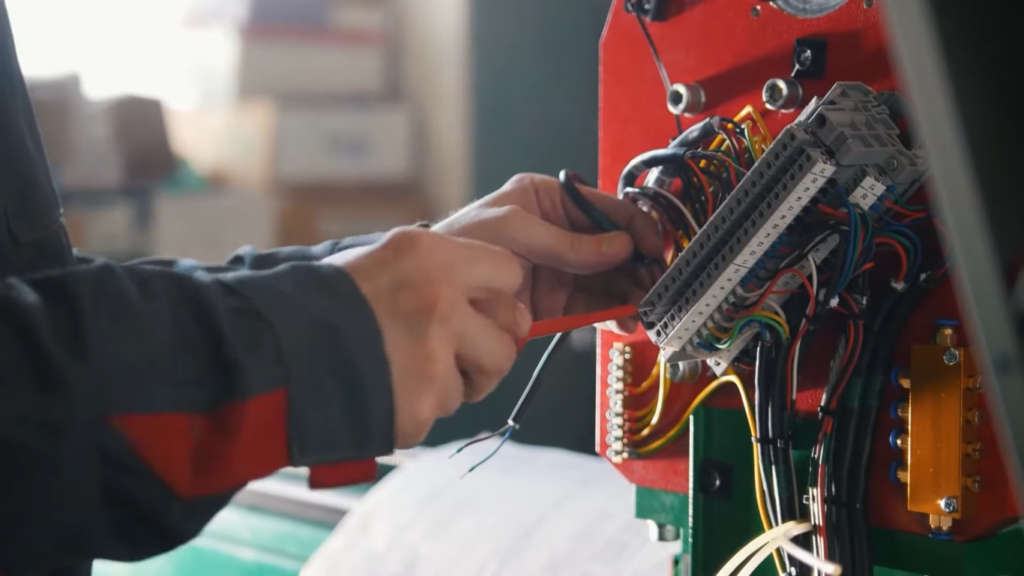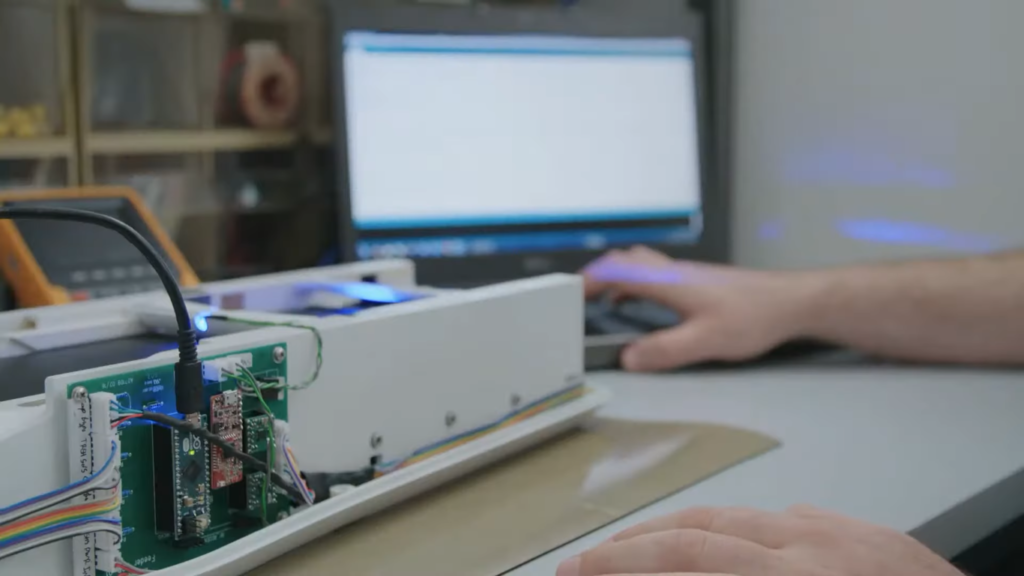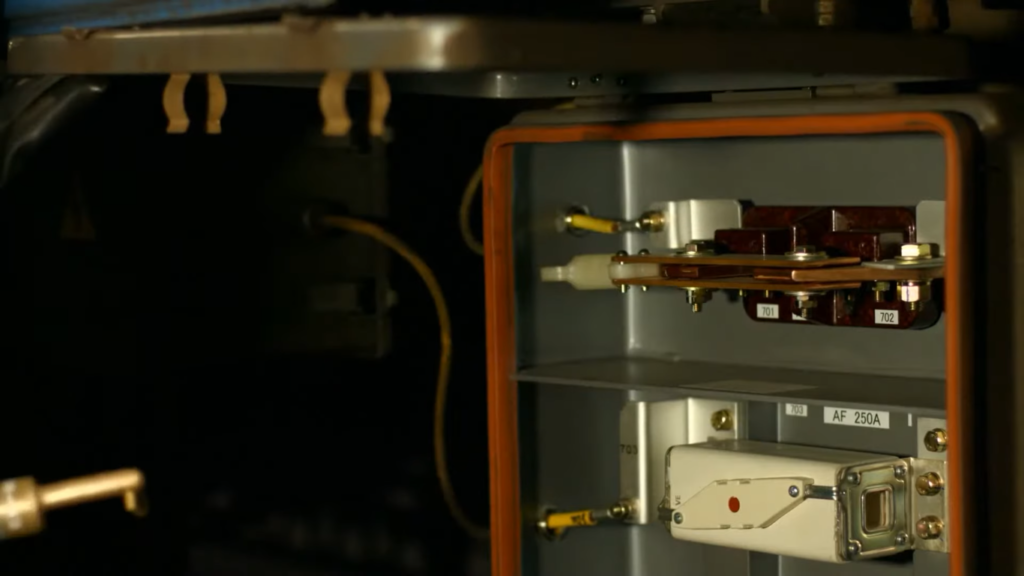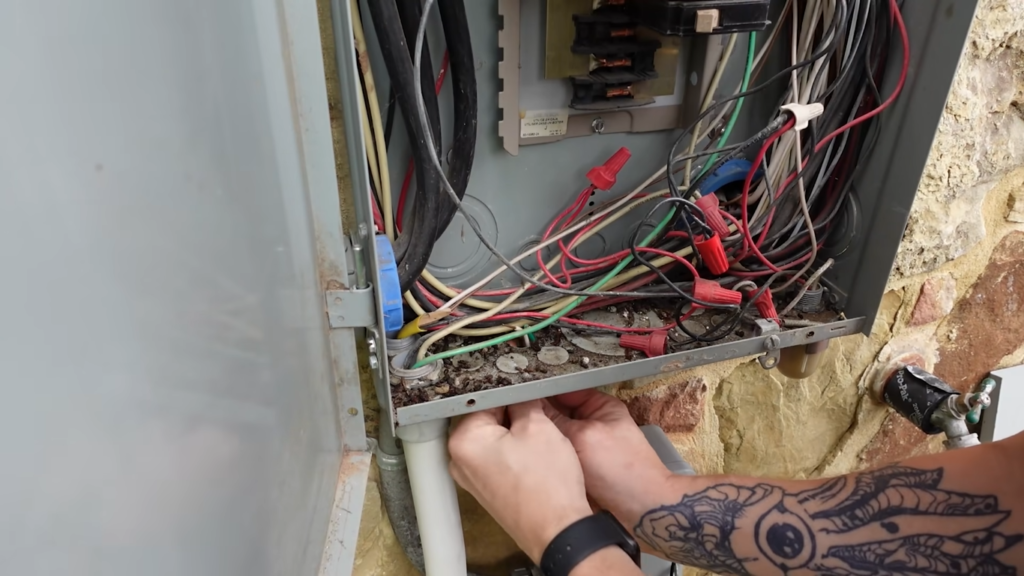So you want to be an electrician? It’s not an easy decision, but it can be a very rewarding career. There are many things to consider before making the jump, and this article will help you make the right choice for your future. We’ll answer some common questions about the job, give you some tips on what to expect, and help you decide if this is the right career for you.
Electricians, Their Tasks and Responsibilities
An electrician is a skilled tradesman who installs, repairs, and maintains electrical systems.

The work of an electrician is both challenging and rewarding. Electricians are responsible for installing, repairing and maintaining electrical systems in both residential and commercial settings. While the day-to-day tasks of an electrician may vary depending on their employer and the specific job they are working on, there are certain core duties that all electricians share.
Some of the most common duties of an electrician include:
Installing new electrical systems in homes and businesses
Installing new electrical systems is one of the most important tasks that electricians perform. When a new home or business is being built, electricians are responsible for installing all of the electrical wiring and fixtures. This includes running wire through walls and ceilings, connecting outlets and switches, and installing light fixtures.
Repairing damaged or malfunctioning electrical systems
Besides installing new electrical systems, electricians are also responsible for repairing damaged or malfunctioning ones. This may involve replacing faulty wiring, testing and troubleshooting electrical components, and making sure that all electrical systems are up to code.
Replacing old or outdated electrical components with new ones
Electricians are often called upon to replace old or outdated electrical components with new ones. This may include replacing outlets, switches, and circuit breakers.
Advising homeowners and business owners on ways to improve their electrical systems
Since no one knows the ways to improve an electrical system better than an electrician, advising homeowners and business owners on ways to improve their electrical systems is one of the most important duties of an electrician. Electricians can advise homeowners and business owners on ways to save money on their energy bills, make their electrical systems more efficient, and improve the safety of their homes and businesses. [1], [2], [3]

Necessary Skills and Qualifications for Becoming Electrician
To become an electrician, you will need to have certain skills and qualifications. Electricians must have a solid understanding of electrical theory and principles. They must know how to read blueprints and follow safety codes. In addition to these, there’s more necessary skills an electrician should have.
Interest in electronics
The first and most important question you need to ask yourself is why you’re interested in becoming an electrician. As with any career, it’s important to have a genuine interest in the field you plan on entering. For electricians, this interest typically comes from one of two places.
The first is a general interest in how things work and how they can be fixed. The second is a more specific interest in electrical systems and the components that make them up. If you’re not interested in electrical work, then there’s no reason to pursue a career as an electrician.
Besides sheer interest, in-depth knowledge of electronics is also important for electricians. This is because they need to know how electrical systems work in order to properly install and maintain them.
A high school diploma (at least)
While you don’t necessarily need a university degree to become an electrician, you will need a high school diploma. Many apprenticeship programs require applicants to have a GED or high school diploma. Some even require post-secondary education, such as completion of technical courses.
Basic understanding of algebra
A basic understanding of algebra is also necessary for electricians. Algebra is used in electrical theory to calculate voltage, current, and resistance. Electricians must be able to solve basic algebraic equations in order to correctly install and repair electrical systems.
Good motor skills
Electricians need highly developed motor skills to be able to work with the tiny wires and components they use on a daily basis. If you have poor motor skills, it will be very difficult to pursue a career as an electrician.

Communication skills
It can be said that good communication skills are important for any job. But for an electrician, it is a must. After all, you will be working with people and dealing with them on a daily basis. You need to be able to communicate effectively in order to explain your ideas clearly, understand the requirements of your clients, and resolve any misunderstandings quickly.
In addition, you also need to be able to read and comprehend technical manuals and other materials related to your work. This will enable you to keep up with the latest developments in the field and be able to apply them in your work.
You need to be at least 18 years old
In most states, you must be at least 18 years old to apply for an electrician’s license. You will need to have a high school diploma or equivalent. Some states may require you to complete an apprenticeship program before you can take the licensing exam.
Physical strength
An electrician needs to have a lot of physical strength. They need to be able to lift heavy objects, climb ladders, and work in cramped spaces. Electricians also need to have good hand-eye coordination to be able to work with small parts and tools.
Driver license
Now, hear us out on this one – we know that having a driver license isn’t technically a “skill.” But, in order to become an electrician, you will need to have a driver license. Why? Because electricians need to be able to get to their worksites. And, in many cases, the only way to do that is by driving.
Having a driver’s license will allow you to get to these sites without having to rely on public transportation or carpools. It’s also important to have a driver’s license so that you can transport your tools and equipment to and from job sites. Most electricians have a van or truck that they use for this purpose.
Tool knowledge
In order to perform their duties, electricians must be well-versed in the use of tools. Electricians use a variety of hand and power tools, including drills, saws, and wrenches. They must also be familiar with electrical testing equipment, such as multimeters and circuit testers.

As you can see, becoming an electrician is not an easy task. It takes years of training and experience to become a fully qualified electrician. But if you have the necessary skills and qualifications, then a career as an electrician can be very rewarding.
The next step to becoming an electrician is completing an electrician apprenticeship program. Apprenticeships usually last four to five years and combine on-the-job training with classroom instruction. During your apprenticeship, you’ll learn safety procedures, electrical theory, and local building codes. Once you complete your apprenticeship, you can take the journeyman electrician exam to become a licensed journeyman electrician. In the next section we will cover some of the main certifications you can and should get. [1], [2], [3]
What Electrician Career Paths Can I Take?
Just like with any job, there are different types of electrician positions with different responsibilities. Some of them you will pass gradually as you climb the career ladder, while others will require specific training. The main types of electrician jobs are:
- Journeyman Electrician
- Apprentice Electrician
- Master Electrician
- Industrial Electrician
- Electrical Contractor
Apprentice Electrician
Apprenticeship programs for electricians typically last four years, and include a combination of on-the-job training and classroom instruction. This is the first step in your electrician career.
The duties of an apprentice electrician vary depending on their level of experience and the specific project they are working on. However, some common tasks that an apprentice electrician may be responsible for include:
- Assisting supervisor electrician with installations, repairs, and maintenance
- Reading and interpreting blueprints and other technical drawings
- Installing electrical panels, conduits, and other electrical systems
Apprentice electricians must complete a certain number of hours of on-the-job training and classroom instruction before they can take the Journeyman Electrician licensing exam.
Journeyman Electrician
A journeyman electrician is a tradesperson who has completed an apprenticeship and has been licensed by the state to work independently on electrical projects. A journeyman can work without direct supervision but must follow the rules and regulations set forth by the local municipality.
They also install outdoor lighting and power lines. Journeymen electricians typically work 40 hours per week, but overtime is often required to meet deadlines or to respond to emergencies.
To become a journeyman electrician, you must first complete an apprenticeship. Apprenticeships typically last four years and combine on-the-job training with classroom instruction. During your apprenticeship, you will learn about electrical theory, blueprint reading, and codes and regulations. You will also gain experience working with tools and equipment.
Once you have completed your apprenticeship, you must pass a journeyman electrician exam to become licensed, as we already brought up. The exam covers electrical theory, safety, and code requirements. Journeyman electricians must also have a valid driver’s license and be able to lift heavy objects. There are plenty of exam providers in all states so that you can choose the one that fits you best.
Master Electrician
The next step after becoming a journeyman electrician and gaining experience is to become a master electrician. A master electrician is a journeyman who has successfully completed an electrical apprenticeship and has passed a state- or local-level exam to earn their license.
Becoming a master electrician requires years of experience and knowledge working with electrical systems. A master electrician is someone who can design, install, and maintain electrical systems in both residential and commercial settings. They are also able to troubleshoot electrical problems and repair any damage that has been done to an electrical system.

In order to become a master electrician, you will need to complete an accredited four-year apprenticeship program. This may change by state. Once you have completed the program, you will need to pass a state-level exam in order to earn your license.
Electrical Contractor
Contractors are responsible for the safety and code compliance of their work.
There are different types of electrical contractors, including general contractors, who oversee all aspects of a construction project; specialty contractors, who focus on a particular type of trade such as HVAC or plumbing; and electrical contractors, who specialize in electrical work.
The scope of work for an electrical contractor can vary widely, from installing a new light fixture in a home to working on major commercial construction projects. Some electricians also do maintenance and repair work.
Basically, an electrical contractor is someone who is licensed to do electrical work. [4]
What are the Potential Risks and Downsides of Being an Electrician in Detail
Now that we’ve looked at the necessary skills and qualifications for becoming an electrician, let’s take a look at some of the potential risks and downsides of being an electrician. No job is an easy one, but being an electrician can be more dangerous than other jobs.
It will take a lot of time to become a master at your job
Electricians are one of the most in-demand professions. There are many reasons for this, but one of the main ones is that it takes a lot of time to become a master at your job. It’s not something you can just learn overnight. It takes years of experience and training to be able to do it correctly and safely.
You will have a lot of odd hours
Being an electrician, you can forget about the traditional eight to five work day. Electricians often have to work long hours, and those hours are often irregular. This is because many electrical problems can’t be fixed during regular business hours. For example, a power outage can’t be fixed during the day, and an electrical fire can’t be put out until the power is shut off.
You may have to work early mornings, late nights, weekends, and holidays. This can make it difficult to maintain a consistent sleep schedule or spend time with family and friends.
It’s a physically demanding job
Most people don’t realize how physically demanding being an electrician can be. Sure, you’re not going to be lifting heavy objects or working outside in the elements all the time, but there is a lot of climbing, crawling, and reaching involved.
Additionally, electricians often have to work in awkward positions and tight spaces. This can put a lot of strain on your body, and it’s not uncommon for electricians to experience back pain or other issues as a result of their work.
In addition to being physically demanding, being an electrician is also a mentally demanding job. Electricians have to be able to troubleshoot problems and think on their feet.

Electricians also have to be able to understand and follow complex electrical plans. This can be a challenge, especially for those who are new to the trade.
It’s a stressful job
Electricians work with high-voltage electricity on a daily basis. This can be extremely dangerous and stressful, especially if you are not properly trained. In addition to the inherent dangers of working with electricity, electricians also have to deal with tight deadlines, demanding customers, and difficult working conditions. All of this can make for a very stressful job.
It’s a dangerous job
Working with electricity is, by its very nature, dangerous. Electricians work with high voltage electricity on a daily basis, which means that there is always the potential for danger. Electricians must be extremely careful when working with electrical wiring and equipment, as one wrong move could result in serious injury or even death.
Another potential risk of being an electrician is exposure to harmful chemicals. Electricians may be exposed to lead, asbestos, and other harmful chemicals when working with electrical components and materials. These chemicals can cause serious health problems, so it’s important for electricians to take precautions to protect themselves. [5], [6]
What are the Potential Advantages of Being an Electrician?
However, you shouldn’t let the potential risks of being an electrician discourage you from pursuing this career. There are also a number of potential advantages to being an electrician.
Job stability
For starters, electricians enjoy pretty good job stability. The Bureau of Labor Statistics projects that employment of electricians will grow steadily even in the current environment.
This growth is due in large part to the continued expansion of the construction industry, as well as an increasing emphasis on upgrading and retrofitting older buildings with more energy-efficient lighting and other electrical components.
Because of this, the market will always need electricians to keep everything running smoothly. Even in times of economic downturn, electricians will still be needed to maintain and repair electrical systems.
Getting qualification is relatively affordable
The next advantage of being an electrician is that getting qualified is relatively affordable. Unlike many other trades, you don’t need to spend thousands of dollars on tuition fees.
First of all, a university degree is not required to become an electrician. In most cases, electricians are trained on the job or through apprenticeship programs.
This means that you can start working and earning a salary while you’re still in the process of getting qualified. And once you do qualify, your earnings will likely increase significantly. Many masters are willing to take an apprentice under their wing, and will charge a lower rate for their services while you’re still learning.
Licensure exam fees are also relatively affordable. In most states, the cost of taking the journeyman or master electrician licensure exam is less than $200. Just be sure to prepare for the exam and budget for the cost of study materials.
The pay is good
Electricians typically earn good salaries, especially when you consider the fact that most only need a high school diploma or equivalent to get started in this field. In fact, according to the Bureau of Labor Statistics, the median annual wage for electricians was $59,190 in the year of 2019. This means that half of all electricians earned more than this amount and half earned less. The top 10% of electricians earned more than $88,430, while the bottom 10% earned less than $30,490.

Many electricians also receive benefits such as health insurance and retirement plans from their employers. Additionally, electricians may be able to take advantage of perks such as paid vacation days and sick days.
Of course the salary is that high because electricians work in hazardous conditions. And we’re not forgetting the long, hard hours and often have to be on call. But if you don’t mind the long hours and are willing to work hard, then being an electrician can be a very rewarding career, both financially and otherwise.
You can be your own boss
Another potential advantage of being an electrician is that you can be your own boss. If you don’t want to work for someone else, you can start your own electrical business. Of course, this comes with a number of risks and responsibilities, but it can be a great way to be in control of your own career.
You will feel good helping others out
One of the best things about being an electrician is that you will be able to help other people. If you are the kind of person who gets satisfaction from helping others, then this could be a great career for you. Whenever someone has a power outage or their electrical system isn’t working properly, they’re going to need an electrician to come and fix the problem
You will be able to use your skills to make sure that people’s homes and businesses have power. You will also be able to help people when they have electrical problems. This can be very gratifying work. [5], [6], [7]
FAQ
Is being an electrician worth it?
The electrician trade has been around for centuries, and it’s one of the most important trades in our society. Electricians are responsible for installing, maintaining, and repairing electrical systems. Electricians are in high demand, and the job outlook is positive. The median salary for an electrician is $51,880 per year, and the job growth is constantly rising. So, if you’re looking for a challenging and rewarding career, being an electrician is definitely worth it.
What should every electrician know?
Electricians are professionals who install, maintain, and repair electrical systems. They work in a variety of settings, including residential, commercial, and industrial buildings. Electricians must be able to read and understand blueprints and technical manuals. They must also be able to use a variety of tools and equipment, including hand tools, power tools, and testing equipment.
What kind of person makes a good electrician?
An electrician is someone who is skilled in electrical work. They may be responsible for installing, repairing, and maintaining electrical systems. A good electrician should have basic algebra skills, be able to read blueprints, and have a strong understanding of physics concepts.
Physical strength is also important, as electricians often have to lift heavy equipment and climb ladders. manual dexterity is necessary to thread wires through conduit and connect them to outlets. Problem-solving skills are essential, as electricians often have to troubleshoot issues with electrical systems.
Is being an electrician hard?
Being an electrician can be physically demanding and sometimes dangerous. Electricians must be able to work in cramped spaces and lift heavy objects. They also work with live wires, so there is always the risk of electrocution. However, most electricians follow safety guidelines and take precautions to minimize the risks associated with their job.
What does an electrician do?
An electrician is a trained professional who installs, maintains, and repairs electrical systems. Electricians work in both commercial and residential settings, and their duties can vary depending on the type of property they are working in.
Is being an electrician a hard skill?
The answer to this question is that it really depends on the person asking it. For some, being an electrician is an extremely difficult skill to master, while others find it relatively easy. There are a few factors that can affect how hard someone finds electrician, such as their natural aptitude for the trade and whether or not they have access to proper training.
Useful Video: 3 Things I Don’t Like About Being an Electrician
Conclusion
So you want to become an electrician? It’s not an easy task, but it can be extremely rewarding. In this article, we’ve gone over some of the most important things you need to know about this occupation. We covered what are the main duties of an electrician, what are the most common hazards of the job, and what kind of training and education is required.
And of course we went over both the downsides and the upsides of being an electrician. It’s a demanding job, both mentally and physically, but it can be very satisfying and it offers a great deal of stability and good pay.
If you’re still on the fence about whether or not this is the right career for you, we suggest doing some more research and talking to people who are already in the field. But if you’re up for the challenge, then we wish you the best of luck in your future endeavors!
Thanks for reading! We hope this article has helped you learn a little bit more about what it takes to be an electrician.
References
- https://www.shrm.org/resourcesandtools/tools-and-samples/job-descriptions/pages/electrician.aspx
- https://www.betterteam.com/electrician-job-description
- https://intercoast.edu/blog/become-an-electrician/
- https://asktheelectricalguy.com/electrician-career-paths/
- https://electricalschool.org/how-hard-is-it-to-become-an-electrician/
- https://asktheelectricalguy.com/how-hard-to-become-electrician/
- https://www.forbes.com/sites/andrewdepietro/2019/11/14/electrician-salary-state/?sh=796c7aeb67de











Leave a Reply